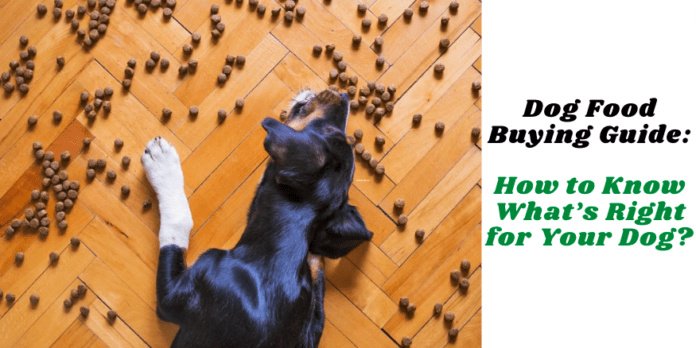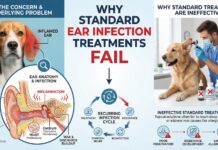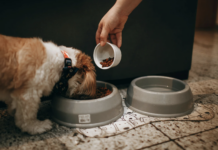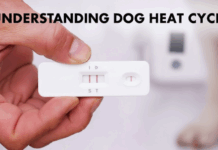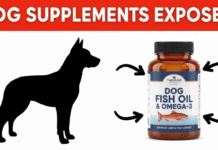Last Updated on July 24, 2022 by Dogs Vets
Dog Food Buying Guide: How to Know What’s Right for Your Dog?
Good nutrition helps dogs live longer, healthier lives. When they eat good food, pets are less likely to get sick. It can even help them avoid diseases like cancer! Certain nutrients are important for your pup’s diet.
These are protein, fat, fiber, vitamins, and minerals. Each of these is an essential part of your pet’s daily intake for them to stay healthy and happy.
The Difference Between Dog Food Categories
There are several different types of dog food on the market today which come in dry form (regular kibble), semi-moist form (treats), canned form or raw meaty bones. Each type of food has benefits and drawbacks.
You can learn more about it on this site. It’s important to understand what each category offers before deciding which one you should feed your dog.
Dry-Kibble Food
This is commonly found in most grocery stores or pet stores. It is the most common form of processed food available for dogs on the market today because it’s convenient, affordable, and lasts a long time after being opened.
However, most dry dog foods do not meet all of your pup’s nutritional needs and they can be high in fat and calories due to the addition of oils, which can lead to obesity in some pets.
Semi-Moist Food
This is also called “treat” food because this type of food is usually given to dogs as a reward during training or just for special occasions.
It comes in the form of dried meat particles in the shape of slices or chunks that are moistened with ingredients like broth or gravy.
These tend to be very high in fat and calories due to added fats! If you do choose this type of diet, make sure that you look at the label on the product packaging before buying it.
Canned Food
This is a semi-moist form of dog food high in protein, low in fat, and contains added vitamins and minerals so they have a slightly higher nutritional value.
Likewise, they tend to be high in calories so they should only be given as a special treat or when you know your pup won’t eat much during the rest of their day.
The smellier versions of this type of food are most appealing to dogs, but some pups may not like the smell of these cans! This kind of food is a good choice for traveling with your pet because it doesn’t make a mess and there isn’t any need for refrigeration.
Raw Meaty Bones
These are exactly what they sound like! They are bones from animals that have been bought at the grocery store or butcher’s shop.They are sold frozen so you can thaw them out before serving them to your dog.
These are only appropriate for certain breeds of dogs because some will not chew on them properly and may choke or swallow large pieces of bone which could obstruct the digestive tract which is dangerous for their health. Also, puppies under six months of age should not be given this type of food because it can make them sick with a disease called “puppy osteochondrosis”.
There are other benefits to using raw meaty bones as part of your dog’s diet, including strengthening their teeth and gums.
Dog Food Labels
The first part of the label will tell you whether or not the product meets AAFCO (Association of American Feed Control Officials) guidelines for nutritional content that dogs need to grow big and strong. This is helpful information but it doesn’t give details on whether or not the food contains high amounts of protein, fat, fiber, vitamins, minerals, or other ingredients your dog needs.
Ingredients are listed in order by weight so if you see a meat ingredient at the top of this list this means there is strong evidence that it is made from that meat!
If an ingredient label says “meat” at the bottom of the list there isn’t enough of it to make a big contribution to the product so you should look for something else.
It’s also important to note that “poultry” includes all species of bird including duck, turkey, and ostrich.
End of the label
The final part of the label is called “Guaranteed Analysis” which contains the percentage by weight for protein, fat, fiber, moisture, ash (amount of mineral content), and calories per serving size.
Just because your dog needs high protein doesn’t mean they will gain more benefits from eating food that has more than 30% protein!
You want to make sure there are other nutritious ingredients in their diet as well like grains or vegetables. The protein percentage can be high but if it’s based on corn ingredients rather than meat, you may want to look for something else.

The best way to see if this is the right food for your dog is to read the ingredient label and then flip it over to check out the Guaranteed Analysis.
If they meet your requirements or you think that they are close, then go ahead and try them on your pup! If their stool looks too soft after eating these types of foods, there could be an issue with digestibility so make sure to contact your veterinarian before switching back.
Always offer foods with different nutritional profiles now and again so they don’t get sick of only one type of food!
,
Conclusion…
We hope you enjoyed this article… Dog Food Buying Guide: How to Know What’s Right for Your Dog?
Please feel free to share with us in the comments section below.
